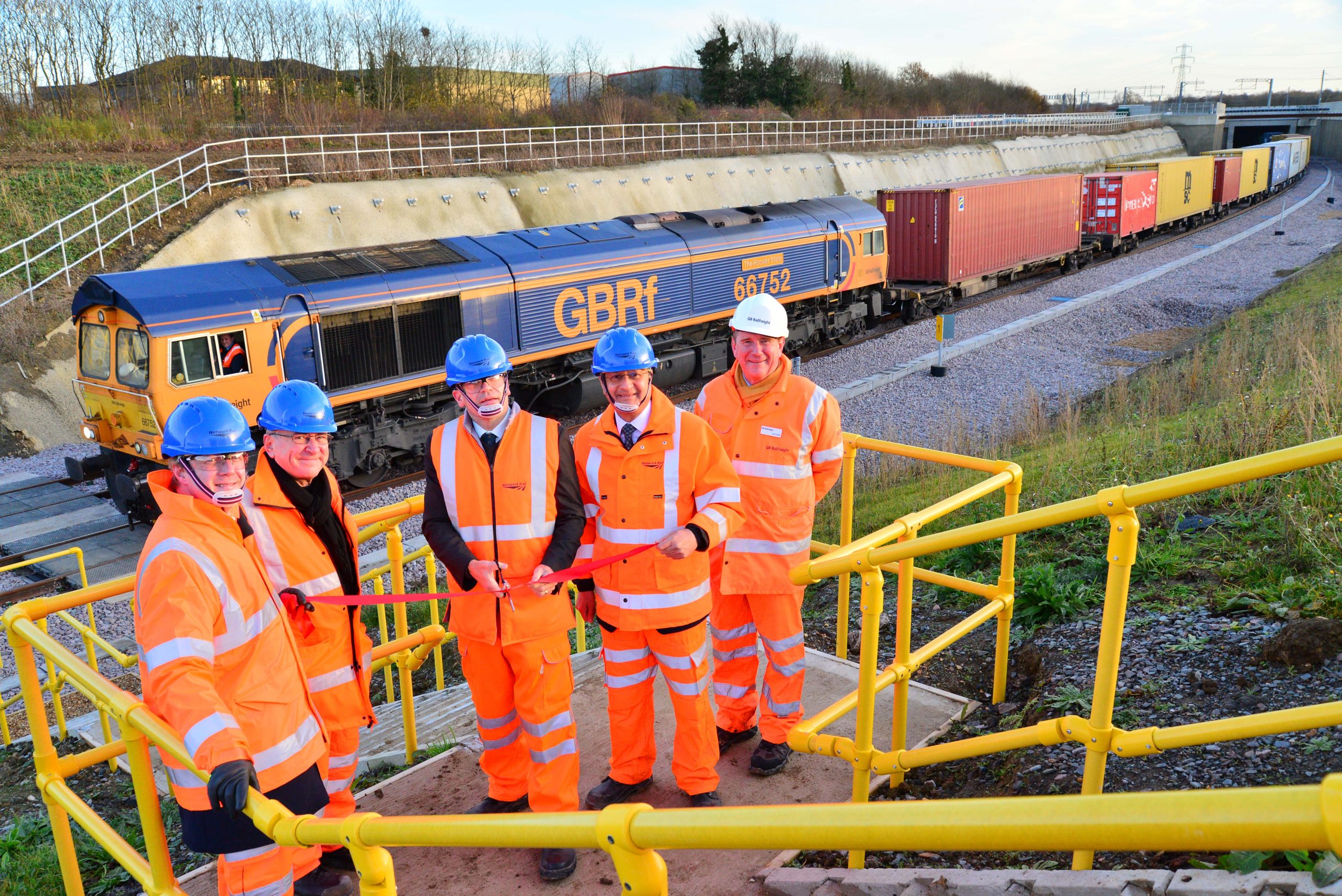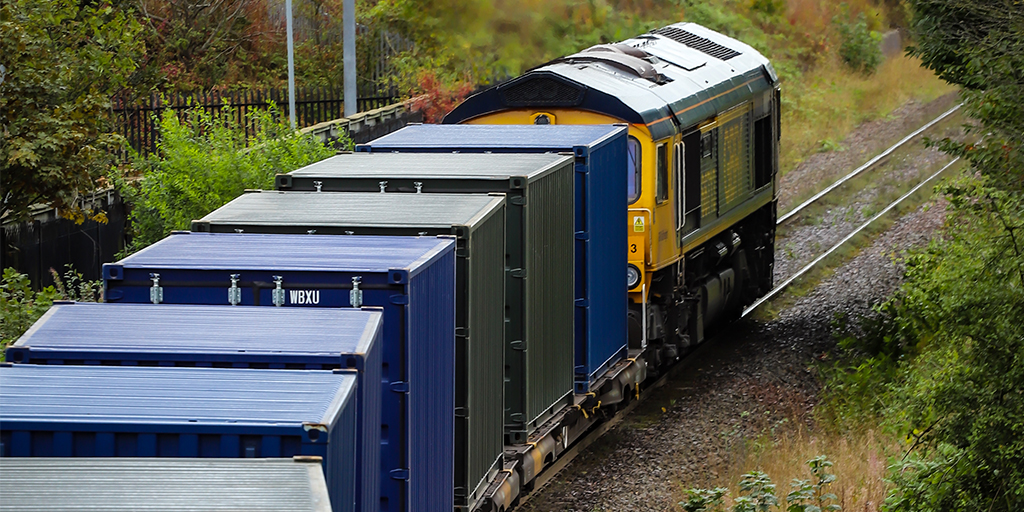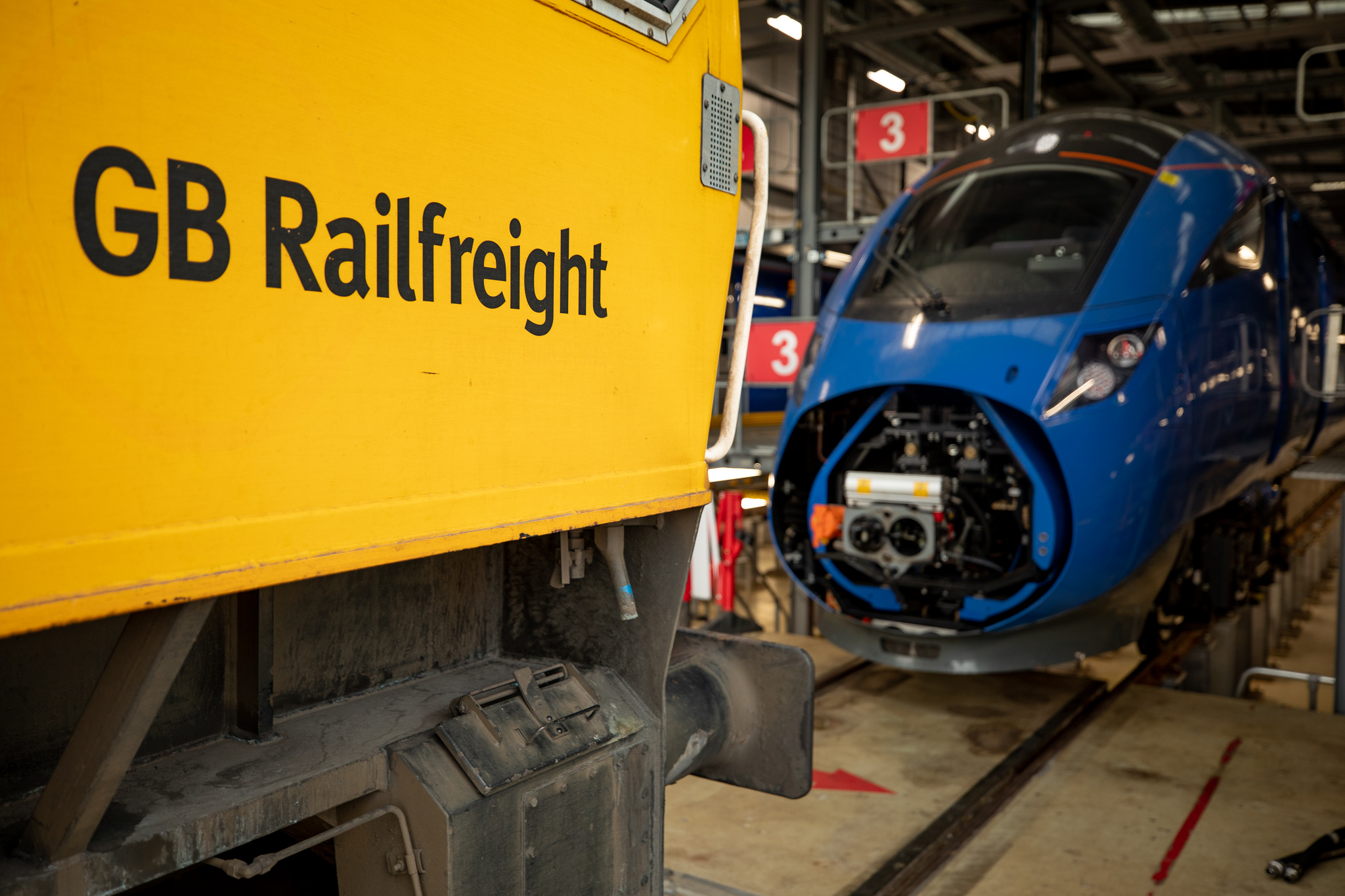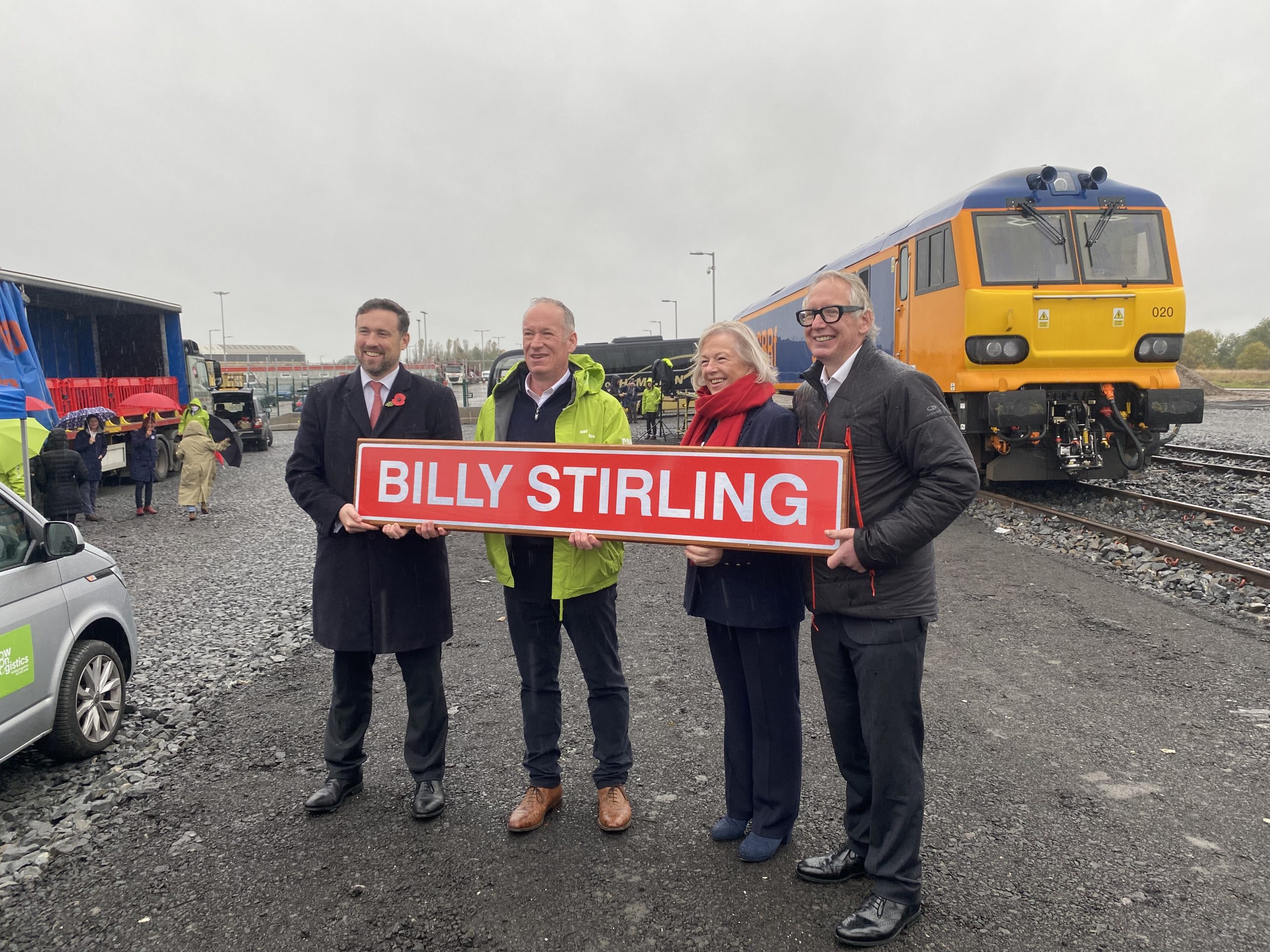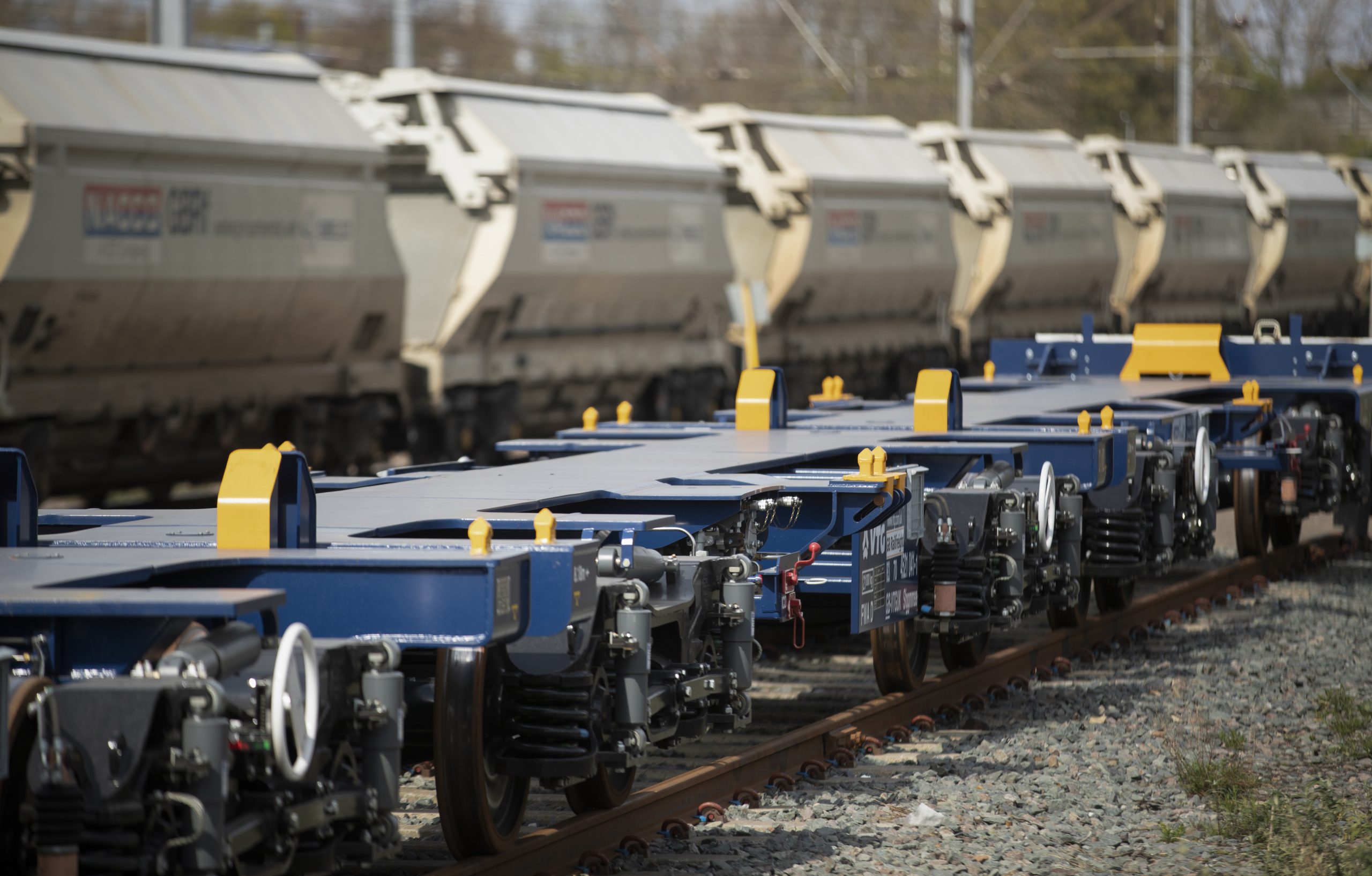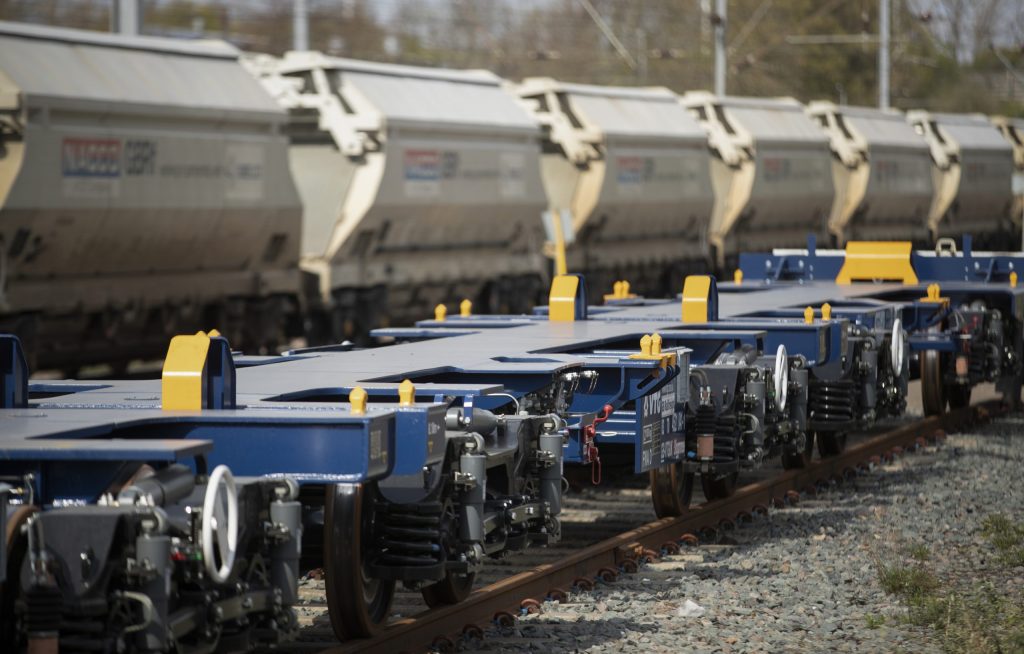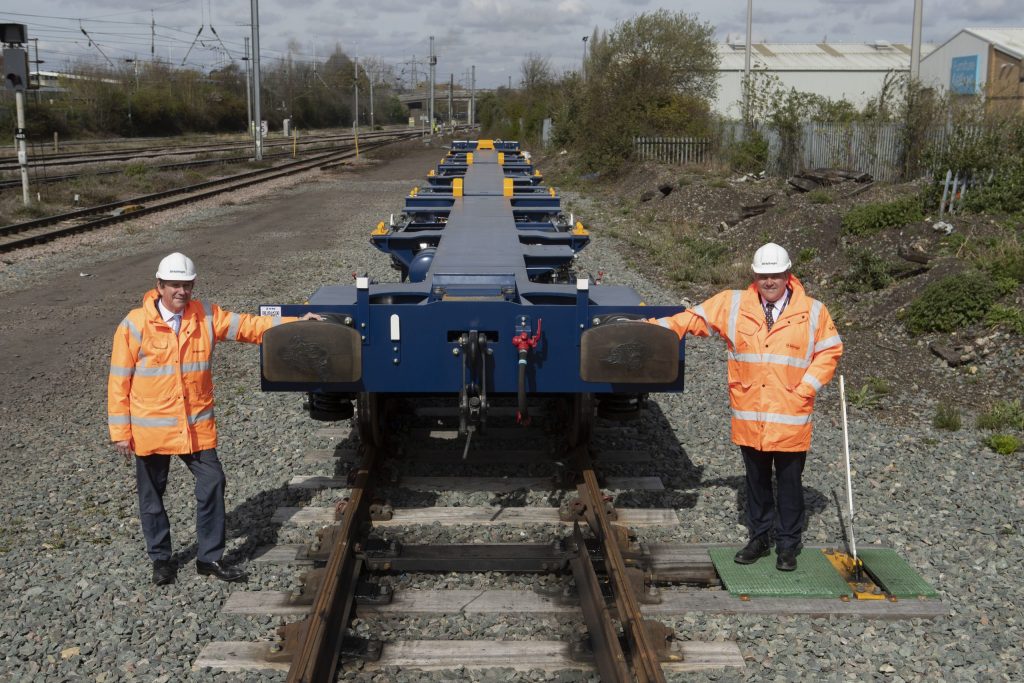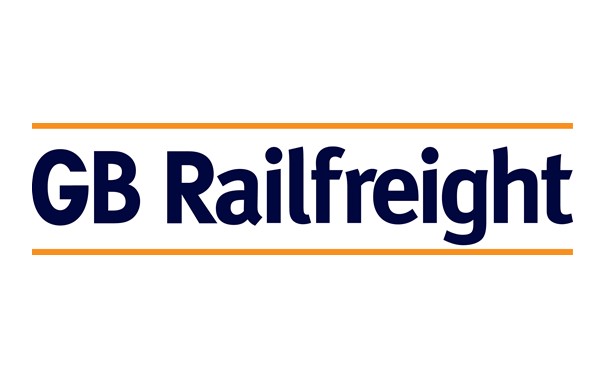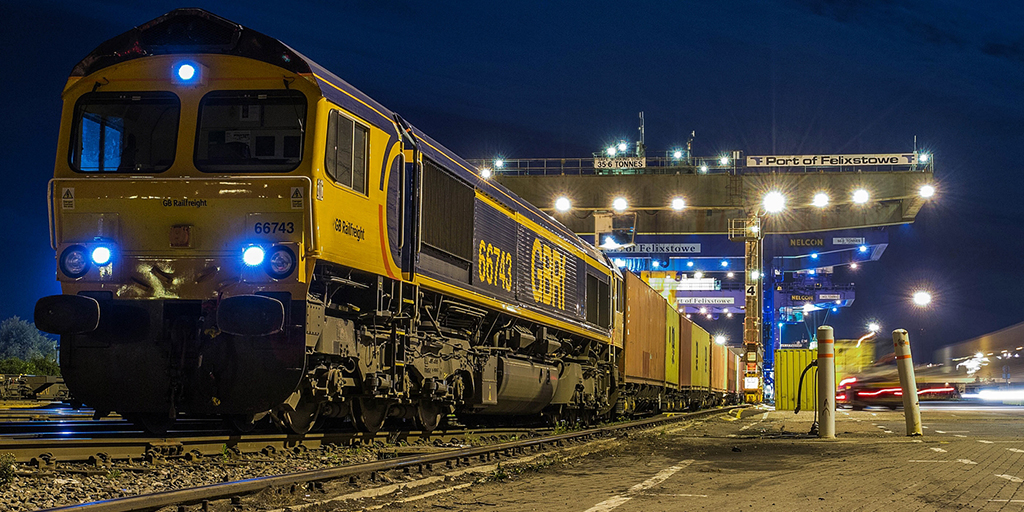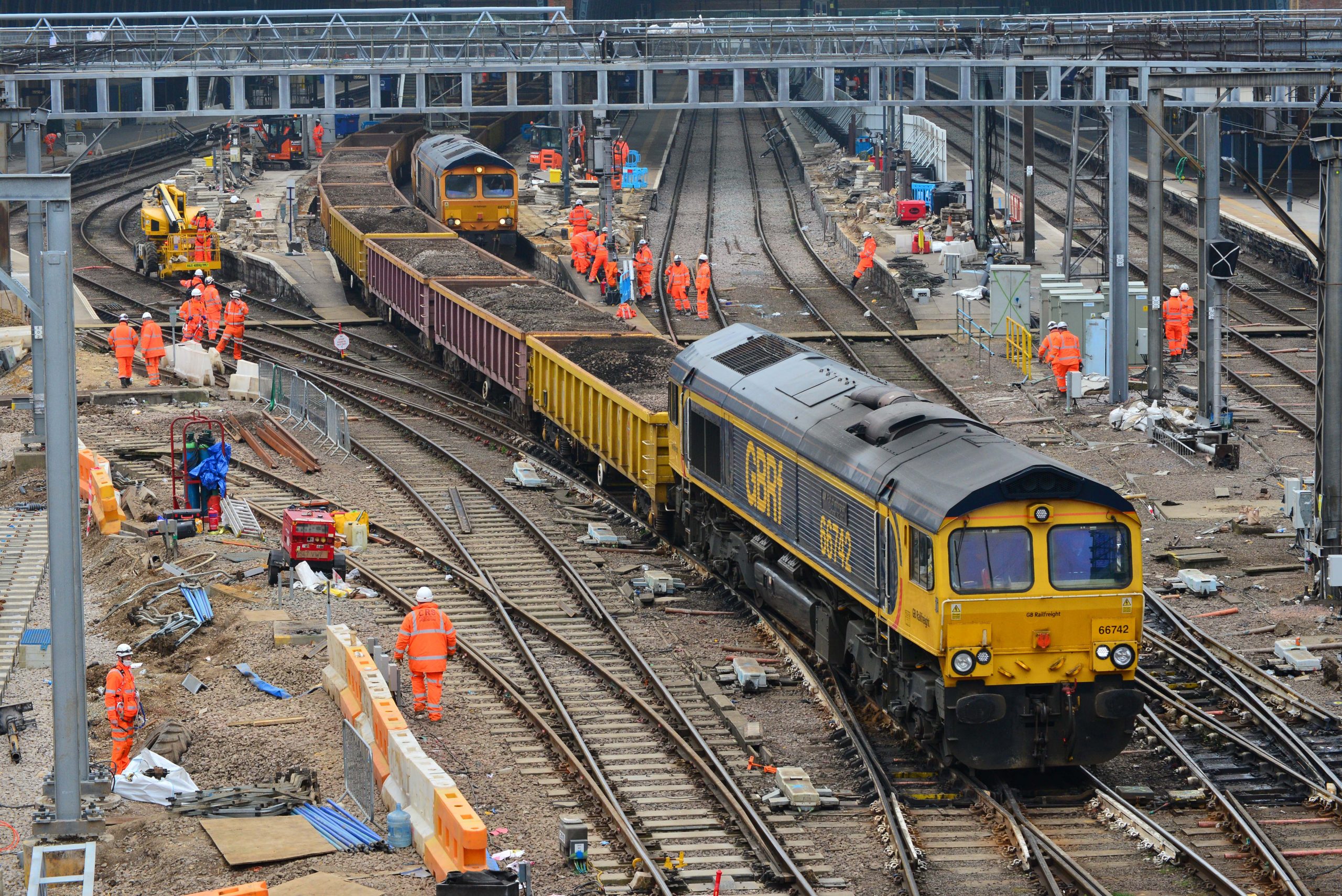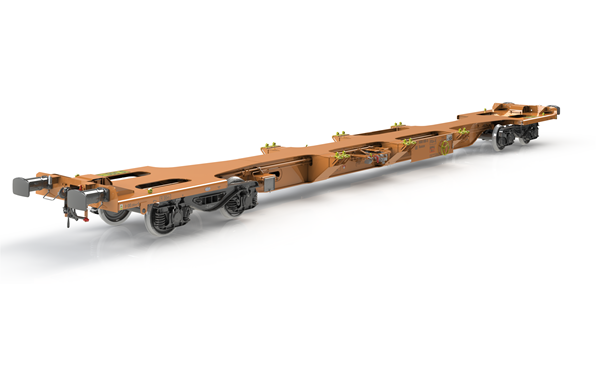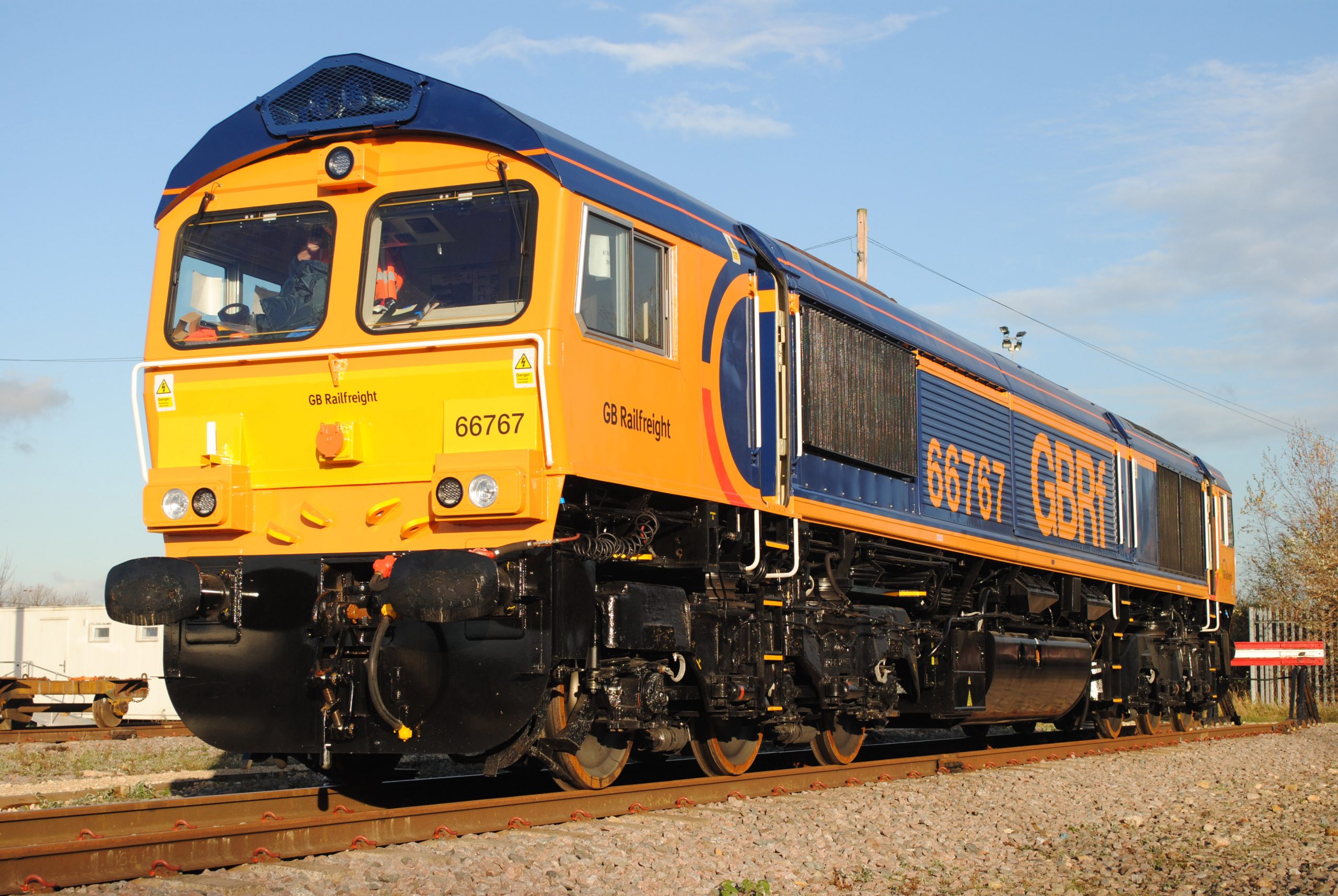New rail freight tunnel brings significant improvements to passenger journeys as part of the East Coast upgrade.
- ground-breaking new tunnel dives under East Coast Main Line unlocking faster, more frequent and reliable journeys
- UK engineering first as 11,000-tonne curved concrete tunnel installed in one go
- opening is a major leap forward for the £1.2 billion East Coast upgrade, which will provide more seats and enable quicker journeys between London, the north of England and Scotland
Rail Minister Chris Heaton-Harris has today (9 December 2021) officially opened the brand-new Werrington Tunnel which carries freight trains underneath the busy East Coast Main Line and ensures that passenger services will no longer be disrupted by freight trains crossing the tracks.
The tunnel will bring significant improvements to passenger journeys on the East Coast Main Line as it passes through Peterborough. By easing congestion on existing tracks, the project will unlock the potential to shave time off journeys, allow more passenger trains through, and will see improved reliability for journeys using the line daily.
This is another successful step in the £1.2 billion East Coast upgrade, which will provide more seats and enable quicker journeys between London, the north of England and Scotland.
The completed project will help pave the way for the massive infrastructure roll out across the north and Midlands recently announced in the Integrated rail plan (IRP). The IRP sets out £96 billion worth of investment into the railways that will deliver real and meaningful improvements to communities, supporting economic growth by transforming both east–west and north–south links. The IRP will bring benefits more quickly to more places, many of which would have gained little under previous plans.
Rail Minister, Chris Heaton-Harris said:
“This country’s railways have long been home to marvels of engineering and the new Werrington Tunnel shows that we are continuing that proud tradition.
Opening this new section of railway marks the end of a project which saw Network Rail engineers deliver an incredible feat installing an 11,000-tonne concrete tunnel, freeing up tracks and unlocking new opportunities for rail freight.
Our investment in the railways, including the unprecedented £96 billion we are spending through the integrated rail plan, means there are even more opportunities to move goods by rails, taking HGVs off the road.”
The engineering needed to install the tunnel saw a UK-first, as the 11,000-tonne curved concrete tunnel, 1,000 tonnes heavier than the Eiffel Tower, was slid into place under the existing railway in January this year. The ‘curved box’ was built next to the East Coast Main Line in 9, interconnected sections. The structure is 155 metres long, 9.5 metres wide and 5.1 metres high, with 1 metre thick walls.
In July, the new track installed inside the tunnel was connected to the existing lines. Work continued to install the signalling system which was commissioned over a single weekend in September. Vital testing of the new tunnel then took place to enable trains to start using the infrastructure.
Rob McIntosh, Managing Director for Network Rail’s Eastern region, said:
“From building the huge concrete tunnel onsite next to the East Coast Main Line, to pushing it into place in a UK first for engineering, to installing new track and signalling equipment to connect it to the existing lines – it’s been amazing to see the progress our teams have made on this ground-breaking project.
Passengers travelling between London, Peterborough, the north of England and Scotland will benefit from faster, more reliable journeys as longer freight trains can now dive underneath the famous passenger route.
I’m proud of our team’s brilliant response to the challenges of the COVID-19 pandemic and how they reached major milestones on the project when it was at its peak. Using innovative methods, we’ve also been able to avoid major disruption for passengers, as services have continued running throughout the majority of the work. We want to thank passengers as well as people in the community for their continued patience.”
The reforms in the Williams-Shapps plan for rail will set up rail freight for the future, investing in projects which boost capacity, improve performance and cut carbon emissions, as the government levels up the country and builds back greener.
Rail freight offers real benefits to the economy and environment – adding £2.5 billion to the UK economy per annum, removing over 7 million lorry journeys from our roads each year and emitting a quarter of the carbon dioxide of lorries per tonne kilometre travelled.
John Smith, CEO of GB Railfreight said:
“The Werrington tunnel is a win for both consumers and the rail freight industry. It will not only improve passenger journeys, but also crucially unlock much-needed extra capacity on the network for freight services. This is an important investment by the government and furthers our industry’s efforts to create a more efficient supply chain across the UK, whilst making crucial environmental and regional investment progress at the same time.”
David Horne, Managing Director at LNER said:
“This unique project has seen huge cross-industry collaboration, with Network Rail working together with train operators and project partners to deliver this essential part of the East Coast upgrade. The completion of this project will reduce delays and create capacity to enable more LNER services to be launched in our new timetable.”
Simon Smith, Managing Director for Morgan Sindall Infrastructure, principal contractor on the project said:
“We’re incredibly proud to have worked closely with Network Rail and our supply chain to deliver the UK’s first curved portal push on the East Coast Main Line upgrade at Werrington. The portal is a great example of the UK’s leading engineering and innovation expertise, harnessing these skills to enhance passengers’ experiences between London and the north of England.”

